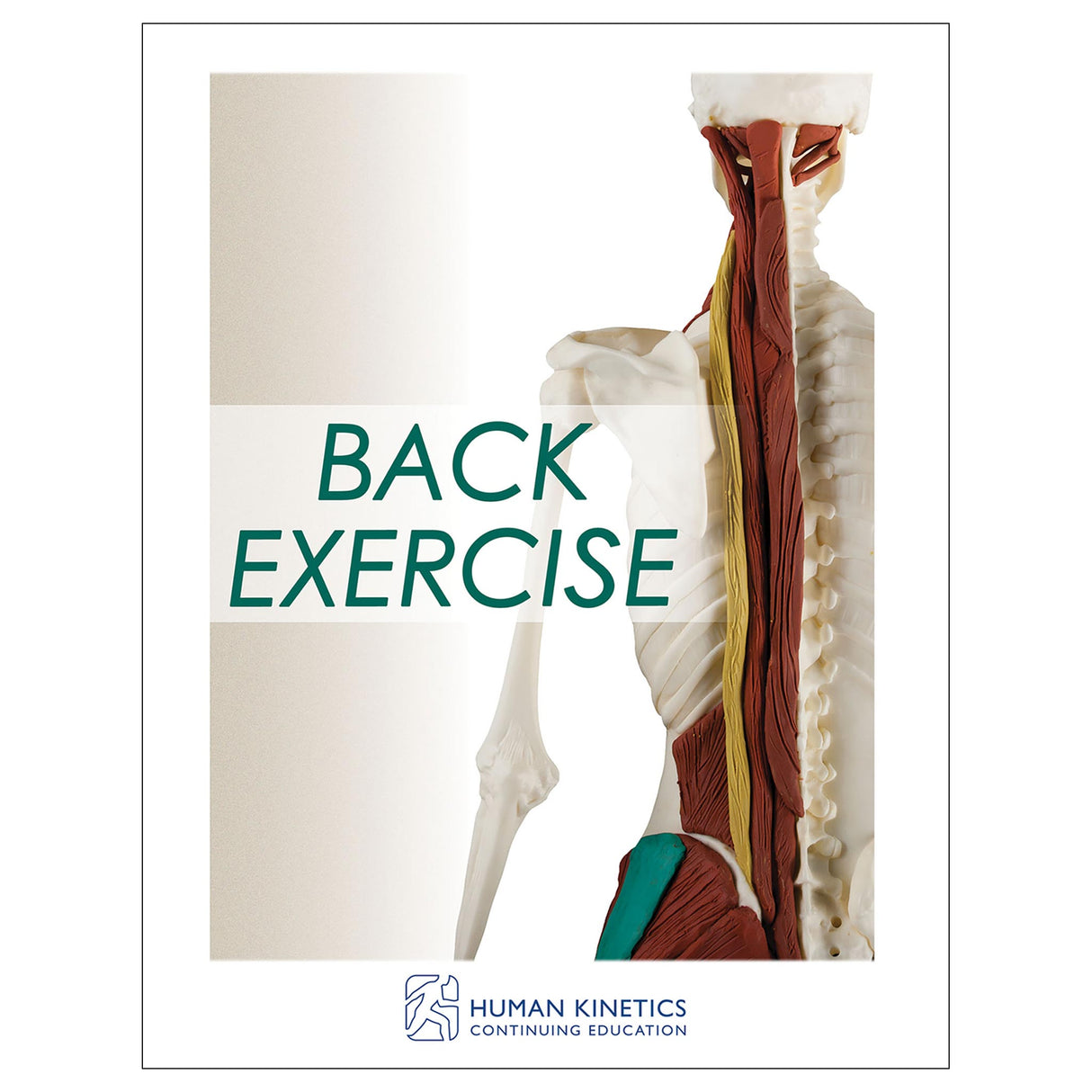Back Exercise Online CE Exam With Print Book
Author: Human Kinetics
$95.00 USD
Human Kinetics strongly recommends that you complete your exam within the calendar year of your date of purchase to ensure approved credits do not expire for your organization.
- Back Exercise book
- Online continuing education exam
Back Exercise goes beyond exercise and rehabilitation to help you understand the why behind spinal conditions and back pain. Throughout the book, unique clay models of the spine reveal each layer of the spinal anatomy, from the spinal vertebrae and discs to the muscle and tissue. These engaging full-color photos make it easy to visualize the structure and biomechanics of the spine and uncover the sources of pain.
You’ll be guided through an evaluation of back health with a self-assessment you can use with your clients. Using only the floor, a wall, and a camera, you can check pain response to several simple exercises and identify postural deviations and muscular imbalances.
Once you’ve assessed back mobility, the book features 60 exercises—complete with instructions and safety tips—that help stabilize, strengthen, and rehabilitate the spine. Create foundational stability for the spine, extend range of motion, and relieve pain with exercises that build strength, mobility, and flexibility in the back.
Finally, Back Exercise explores five common spinal conditions: nonspecific low back pain, disc bulge and herniation, spondylolisthesis, stenosis, and spinal surgeries such as spinal fusion. Six months’ worth of tailored exercise plans are presented for each condition, offering a safe progression of exercises to improve mobility, increase stability, and reduce pain.
After reading the book, certified professionals can take the companion CE exam to earn continuing education credits.
Learning Objectives
- Identify the anatomy of the spine, including the distinct sections of the vertebral column.
- Discuss the scope of practice for personal trainers working with clients experiencing acute or chronic pain.
- Explain how exercise can reduce low back pain.
- Describe the muscles responsible for stabilizing the spine.
- Explain how an exercise program can help reduce low back pain while improving overall movement efficiency.
- Demonstrate how to perform exercises that can enhance spinal stability while reducing low back pain.
- Explain a progressively challenging exercise program with appropriate adjustments for volume and intensity.
- Demonstrate exercises that can enhance the strength of the spine.
- Explain which exercises may be contraindicated (avoided) due to a specific preexisting injury or postural distortion.
- Identify conditions that can affect the normal structure and function of the spine.
Audience
Personal trainers, group exercise instructors, athletic trainers, and other certified fitness professionals.Chapter 1. Anatomy of the Spine
Chapter 2. Spinal Stability Training
Chapter 3. Assess Yourself
Part II. Exercises
Chapter 4. Supine and Prone Exercises
Chapter 5. Quadruped, Seated, and Standing Exercises
Chapter 6. Mobility and Flexibility Exercises
Part III. Common Conditions
Chapter 7. Nonspecific Low Back Pain
Chapter 8. Disc Bulge and Herniation
Chapter 9. Spondylolisthesis
Chapter 10. Stenosis
Chapter 11. Spinal Surgeries





